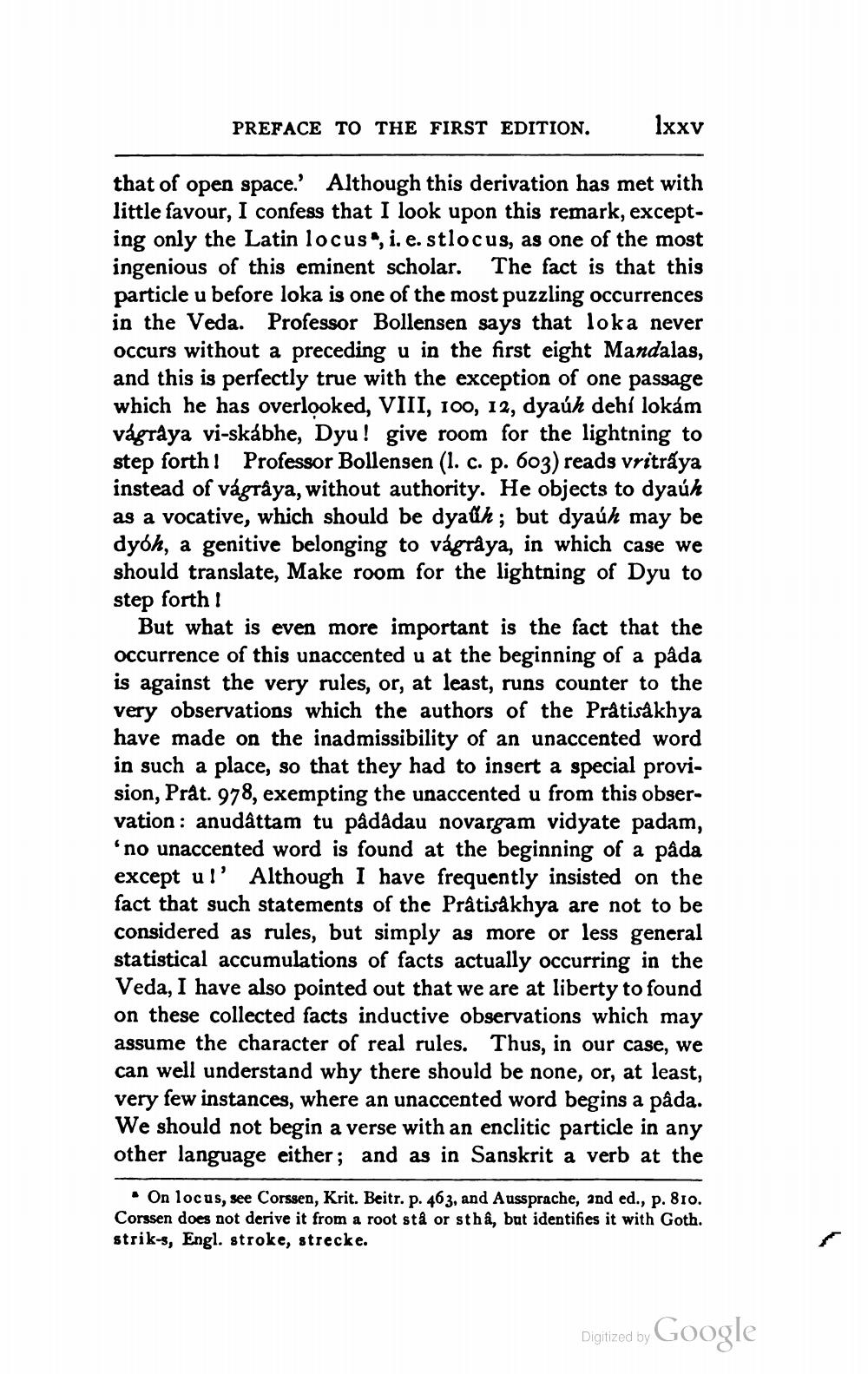________________
PREFACE TO THE FIRST EDITION.
Ixxv
that of open space.' Although this derivation has met with little favour, I confess that I look upon this remark, excepting only the Latin locus“, i.e. stlocus, as one of the most ingenious of this eminent scholar. The fact is that this particle u before loka is one of the most puzzling occurrences in the Veda. Professor Bollensen says that loka never occurs without a preceding u in the first eight Mandalas, and this is perfectly true with the exception of one passage which he has overlooked, VIII, 100, 12, dyaúh dehí lokám vágraya vi-skábhe, Dyu! give room for the lightning to step forth! Professor Bollensen (1. c. p. 603) reads vritraya instead of vágrâya, without authority. He objects to dyaúh as a vocative, which should be dyath ; but dyaúh may be dyoh, a genitive belonging to vágraya, in which case we should translate, Make room for the lightning of Dyu to step forth !
But what is even more important is the fact that the occurrence of this unaccented u at the beginning of a pada is against the very rules, or, at least, runs counter to the very observations which the authors of the Prátisakhya have made on the inadmissibility of an unaccented word in such a place, so that they had to insert a special provision, Prât. 978, exempting the unaccented u from this observation: anudattam tu pâdâdau novargam vidyate padam, ‘no unaccented word is found at the beginning of a pâda except ul' Although I have frequently insisted on the fact that such statements of the Prâtisåkhya are not to be considered as rules, but simply as more or less general statistical accumulations of facts actually occurring in the Veda, I have also pointed out that we are at liberty to found on these collected facts inductive observations which may assume the character of real rules. Thus, in our case, we can well understand why there should be none, or, at least, very few instances, where an unaccented word begins a pâda. We should not begin a verse with an enclitic particle in any other language either; and as in Sanskrit a verb at the
. On locus, see Corssen, Krit. Beitr. p. 463, and Aussprache, and ed., p. 810. Corssen does not derive it from a root stå or sthå, but identifies it with Goth. strik-s, Engl. stroke, strecke.
Digized by Google




